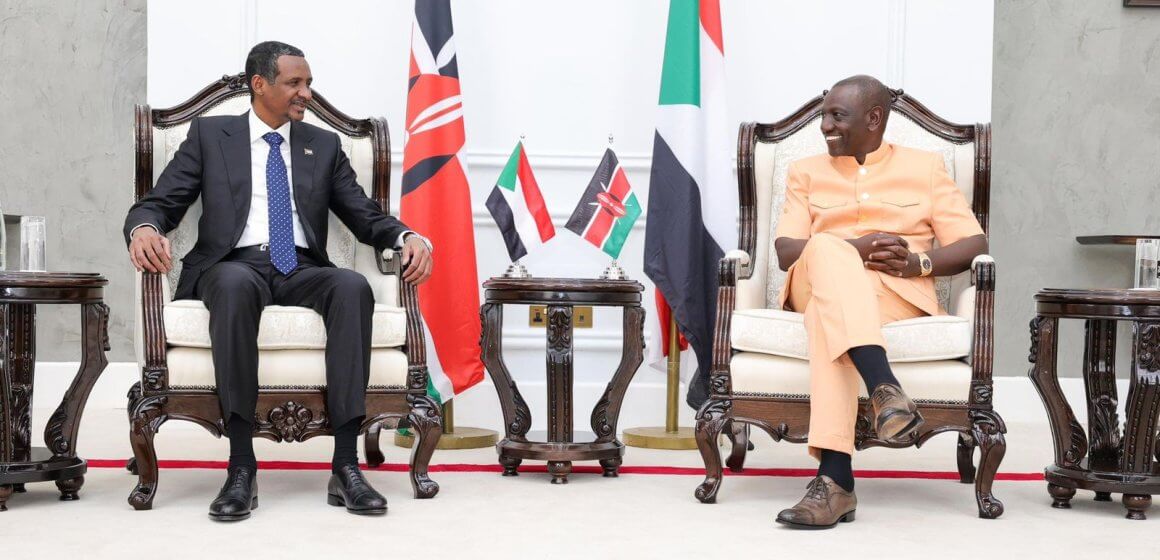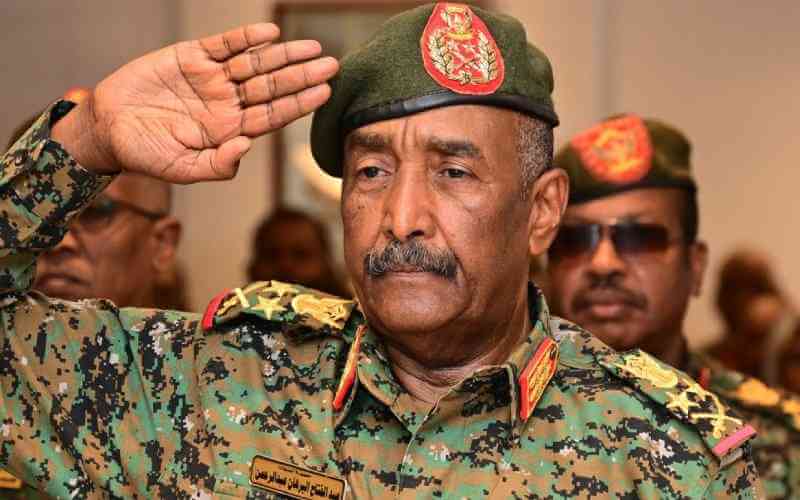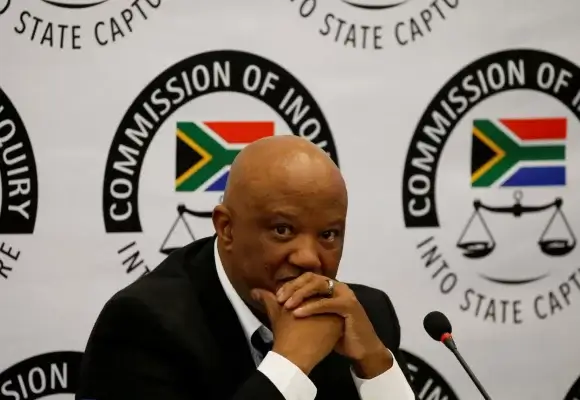|
LISTEN TO THIS THE AFRICANA VOICE ARTICLE NOW
Getting your Trinity Audio player ready...
|
For nearly a year, Sudan has been engulfed in a brutal civil war between the Sudanese Armed Forces (SAF), led by General Abdel Fattah al-Burhan, and the paramilitary Rapid Support Forces (RSF), commanded by General Mohamed Hamdan Dagalo, also known as Hemedti.
The conflict erupted in April 2023 after months of tension over plans to integrate the RSF into the national army, a process that would have effectively placed Hemedti under Burhan’s command. Instead of unity, the dispute ignited one of the deadliest wars in Sudan’s history, reducing entire cities to rubble, killing thousands, and displacing over 11 million people.
The fighting has turned Sudan’s capital, Khartoum, into a warzone, with both sides accused of widespread human rights abuses, including ethnic massacres, sexual violence, and indiscriminate bombings. The international community has attempted multiple ceasefires and peace negotiations; through the United Nations (UN), the African Union (AU), and the Intergovernmental Authority on Development (IGAD)—but none have held.
As the war drags on, regional powers have been forced to take sides, whether officially or unofficially. Egypt has backed Burhan’s army, while the United Arab Emirates (UAE) has been accused of covertly supporting the RSF. Amid this geopolitical chess game, Kenya has positioned itself as a mediator, a role it has played in past conflicts in Sudan and South Sudan. However, its recent engagement with the RSF has triggered a diplomatic storm, putting its reputation as a neutral peace broker at risk.

On Tuesday, February 18, 2025, Kenya hosted a controversial meeting in Nairobi, bringing together RSF leaders and Sudanese civilian factions. The gathering, held at the Kenyatta International Convention Centre (KICC), was originally intended to facilitate discussions on a roadmap for Sudan’s future. However, it quickly became a flashpoint in an already volatile conflict.
Sudan’s military-led government reacted with fury. The country’s Foreign Ministry issued a scathing statement, accusing Kenya of violating Sudan’s sovereignty and undermining its stability. “This act constitutes a blatant violation of Sudan’s sovereignty and national security and threatens the strong relations of good neighborliness among the countries in the region.”
The Sudanese government went further, recalling its ambassador from Kenya on February 20, a move that signaled a sharp diplomatic escalation. Sudan’s army dismissed the Nairobi meeting as a “mere propaganda event” orchestrated by the RSF and warned of potential retaliatory measures. “The Sudanese Armed Forces will take all necessary actions to preserve the country’s unity and sovereignty,” Sudan’s military leadership stated, without elaborating on what those actions might entail.
Despite the backlash, Kenya has maintained that its involvement is purely for mediation and that it does not support any one side in Sudan’s war. Prime Cabinet Secretary Musalia Mudavadi defended Nairobi’s decision to host the meeting, emphasizing Kenya’s long history as a peace negotiator in the region.
“When Kenya offers a space for dialogue, it does so in good faith, without ulterior motives. We firmly believe that political disputes cannot be solved militarily. Dialogue is the only way forward.”
Mudavadi also pointed out that Sudanese political groups have previously sought mediation in other African countries without controversy. “This is not the first time Sudanese factions have met in neighboring countries to seek a solution to their crisis. In January 2024, parties to the conflict convened in another country to discuss a pathway toward inclusive governance and the return to civilian rule.”
The Nairobi meeting brought together RSF Deputy Commander Abdel-Rahim Hamdan Dagalo and leaders from various Sudanese political factions. Initially set for February 18, the gathering was intended to result in the signing of a political charter to establish a governing structure in RSF-controlled areas. However, the signing was postponed to Friday, February 21 at the request of the Sudan People’s Liberation Movement-North (SPLM-N), a key Sudanese rebel group.
He further defended Kenya’s involvement by citing history. “Kenya played a critical role in the 2005 peace process that ended Sudan’s civil war. We are following in the footsteps of those leaders who sought solutions through dialogue.”
The controversy surrounding Kenya’s engagement with the RSF underscores the complexity of the Sudanese war and its far-reaching consequences. The African Union and IGAD now face a delicate balancing act: supporting inclusive peace talks while avoiding the appearance of legitimizing armed factions.
At the same time, Sudan’s diplomatic escalation against Kenya could have broader repercussions. If Sudan follows through with potential retaliatory measures, it could impact trade, regional cooperation, and even Kenya’s security interests.
Kenya’s decision to host the RSF and its allies is a high-stakes move. On one hand, it reaffirms Nairobi’s role as a regional peace broker, a position it has successfully held in previous conflicts. A breakthrough in Sudanese peace efforts could enhance Kenya’s diplomatic influence, not just in East Africa but on the broader African and international stage.
However, the risks are just as great. If the SAF perceives Nairobi as a biased actor, it could refuse to engage in any Kenya-led peace efforts, making future mediation attempts impossible. Worse, if the talks in Nairobi contribute to a deeper division within Sudan, Kenya could find itself blamed for fueling instability rather than fostering peace.












LEAVE A COMMENT
You must be logged in to post a comment.